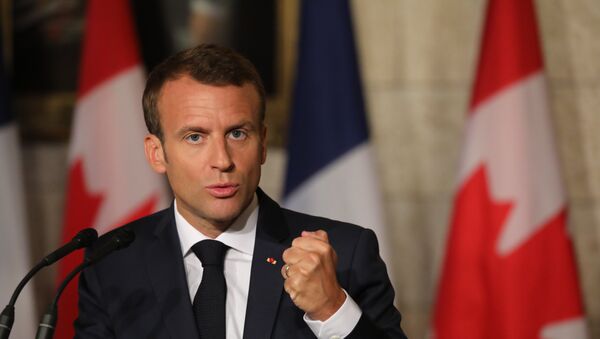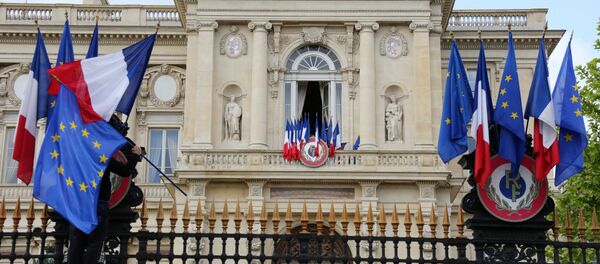Earlier in the day, French President Emmanuel Macron and Canadian Prime Minister Justin Trudeau agreed on the launch of the Joint Council for Defense Cooperation starting from the end of the year. The format is expected to boost cooperation between the countries' armed forces.
The two leaders also signed the Canada-France Statement on Artificial Intelligence, which calls for the establishment of a relevant international study group, made up of experts from government, industry, and civil society. According to Trudeau’s press service, the group "will be mandated to become the global reference" on the issue.
READ MORE: Macron, Trudeau Agree to Set Up Council for Defense Cooperation — Reports
The new statements on closer cooperation come amid Macron's working visit to Ottawa ahead of the two-day G7 Summit, scheduled to start in Canada’s Charlevoix region on Friday.
Business Rather Than Politics
"We have cooperation with a huge number of states in the sphere of defense, and there is nothing specific in cooperation with Canada … Generally, we try to have what’s called strategic partnership, having regular meetings, what we do with many countries, Australia as well for example, but it’s not particular," Maulny said.
According to the expert, the initiative is more about business rather than politics.
"They have to buy arms and equipment, and we are interested in selling them ours … I’d say that it’s really about business," Maulny said.
Maulny noted that in the past the bilateral military cooperation had been tainted by what was supposed to be a deal with Canada buying a number of French submarines, which had not gone through.
No Tangible Results Expected
Another expert shares the opinion that the French-Canadian cooperation initiative could hardly be seen as unique.
"French-Canadian cooperation is something which is not new, we’ve always interacted with them, we’ve seen that in the Air Force, for example. Now we see that there are agreements going beyond the NATO cooperation. However, Canada is not a major partner for France, so I hardly see what can be added upon this cooperation in the NATO framework," Jean-Vincent Brisset, a retired brigadier general of the French Air Force and a IRIS senior research fellow, told Sputnik.
"There is a lot of ‘cooperation’ at the European level, consisting in creation of military staff and headquarters that doesn’t serve to anything. There were some initiatives, like mutualisation of the European air transport, sharing of in-flight refueling, which functioned well, but many other initiatives resulted in simple creation of directorates general, like Euroforce, that did not give any serious result," the expert pointed out.
The new initiatives seem to be in line with the Canada-France Enhanced Cooperation Agenda, adopted back in October 2016, with the two countries pledging to build on "close-knit" defense cooperation.
The views and opinions expressed by experts do not necessarily reflect those of Sputnik.





